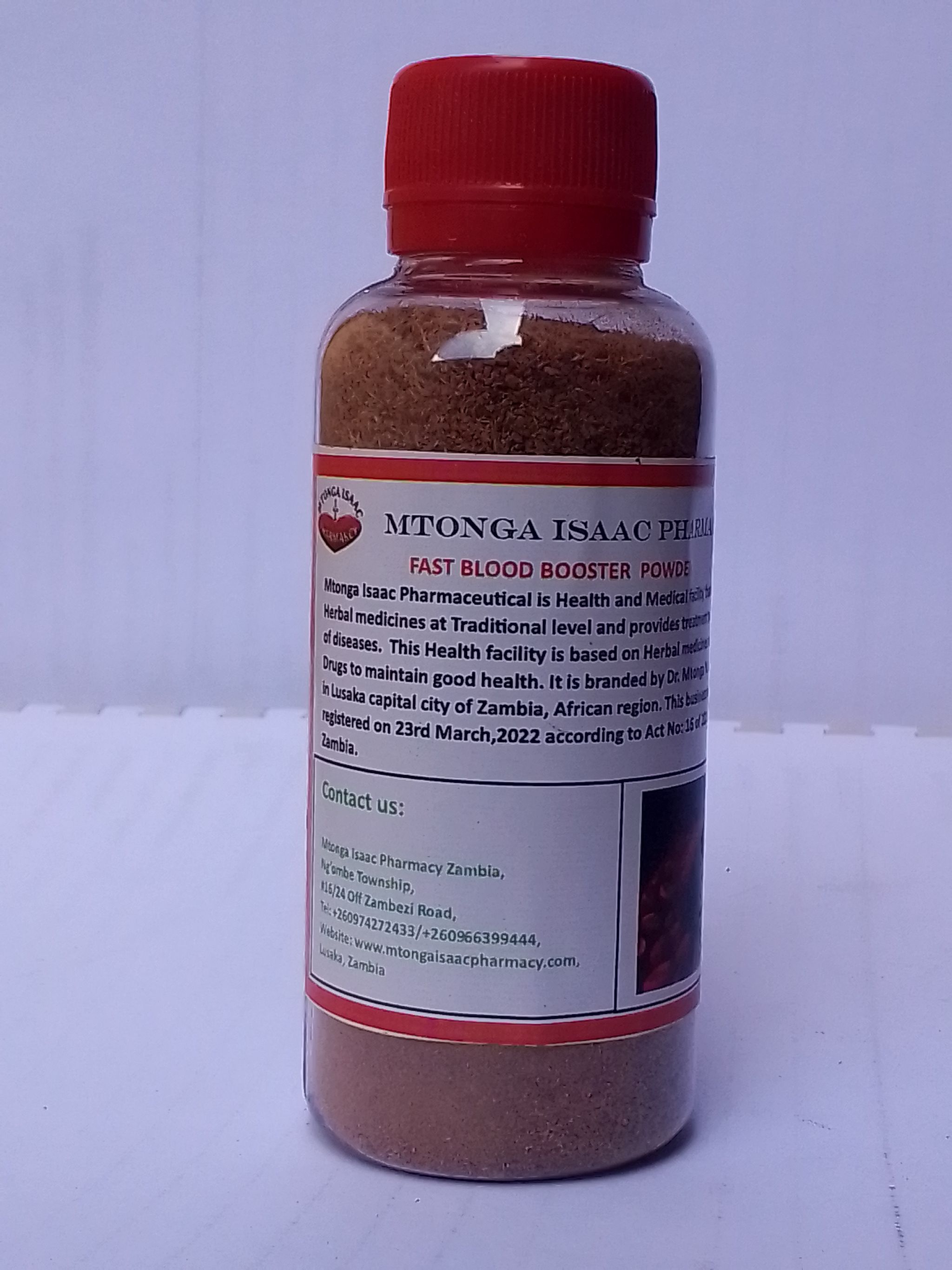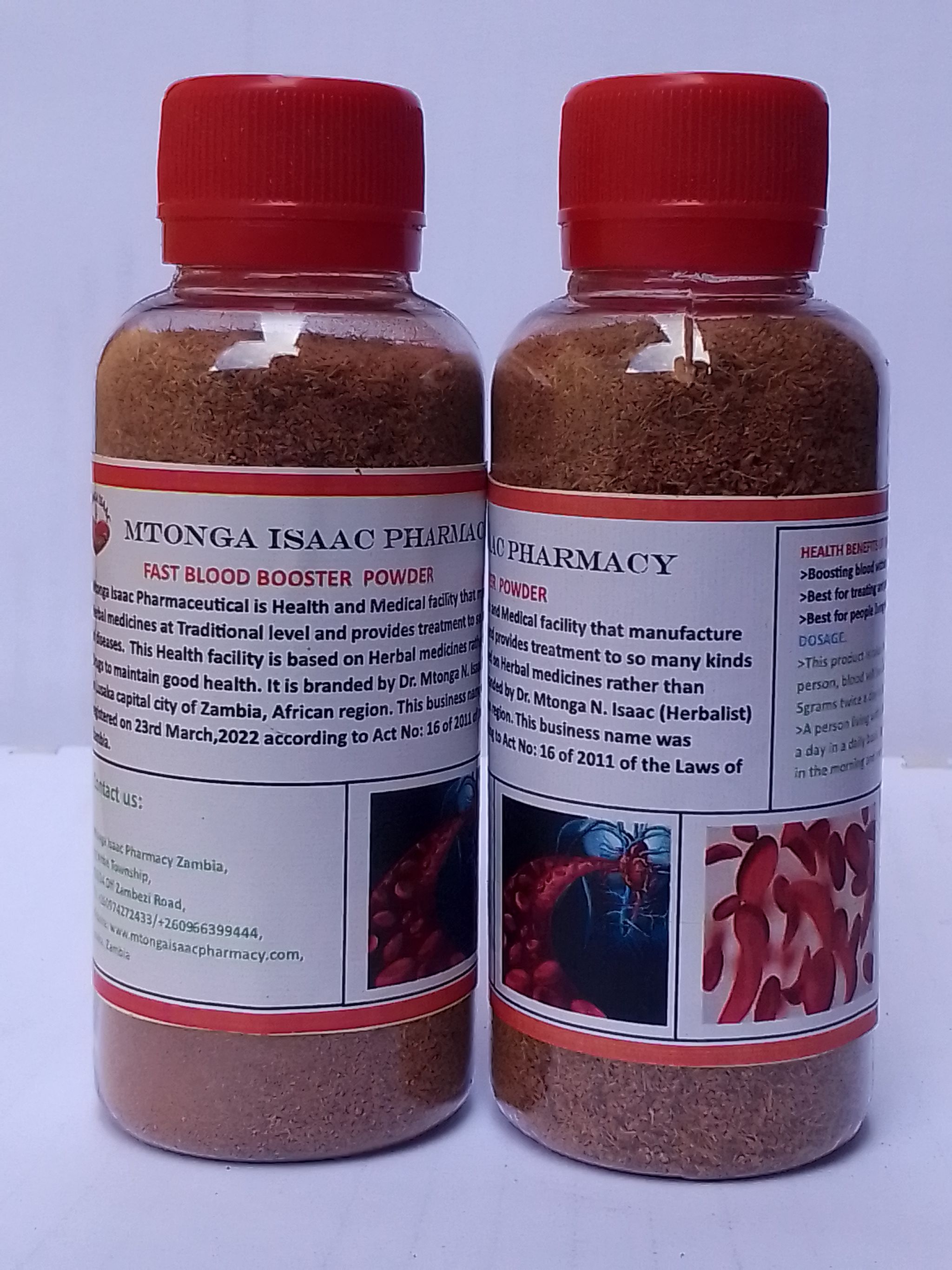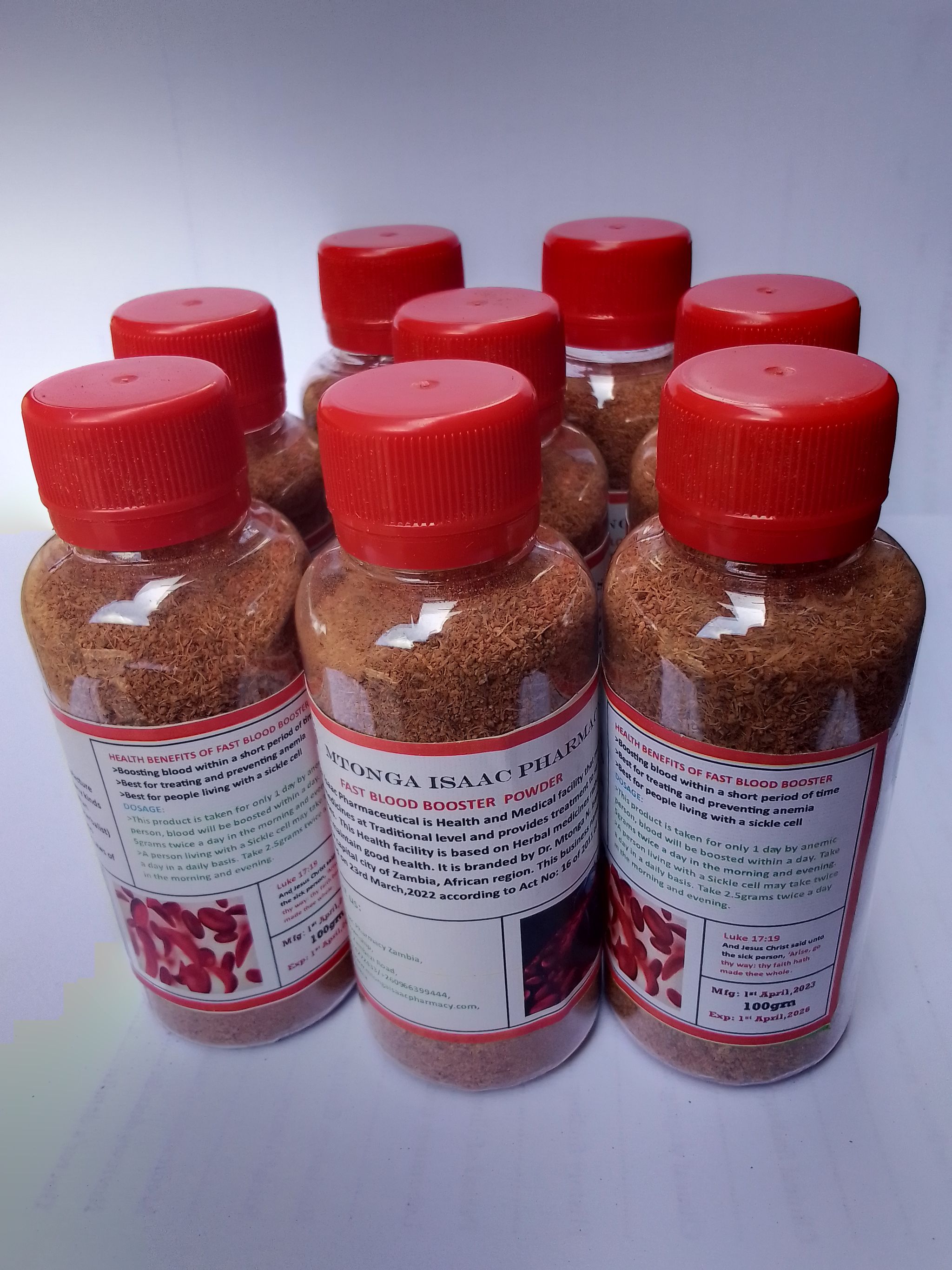HEALTH BENEFITS OF FAST BLOOD BOOSTER
When Anemia attacks you, there must be a solution to replace lost blood in your body. Fast Blood Booster Powder is here to help you to restore your blood into normal Blood volume in your body. It's prepared by Dr Mtonga N. Isaac(Herbalist).
See benefits of consuming Fast Blood Booster product ❤️:
>Boosting blood within a short period of time
>Best for treating and preventing anemia
>Best for people living with a sickle cell Anemia
>Best for pregnant women who loss blood frequently.
>Best for people living with intestinal ulcers
>Best for people living with intestinal disorder; where your body fails to absorb vitamins
>Best for people living with HIV/AIDs for they loss blood frequently
WHAT IS ANEMIA?
Anemia is a condition in which you don't have enough healthy red blood cells to carry adequate oxygen to your tissues. Having anemia may make you feel tired and weak.
There are many forms of anemia, each with its own cause. Loss of blood is the most common cause of anemia. Anemia can be temporary or long term, and it can range from mild to severe.
Treatments for anemia range from taking supplements to undergoing medical procedures. You may be able to prevent some types of anemia by eating a healthy, varied diet.
See your doctor if you suspect you have anemia because anemia can be a sign of serious illnesses.
SYMPTOMS
Anemia symptoms vary depending on the cause of your anemia but may include:
1. Fatigue
2. Weakness
3. Pale skin
4. A fast or irregular heartbeat
5. Shortness of breath
6. Chest pain
7. Dizziness
8. Cognitive problems
9. Cold hands and feet
10. Headache
Initially, anemia can be so mild it goes unnoticed. But symptoms increase as anemia worsens.
CAUSES
Anemia occurs when your blood doesn't have enough red blood cells. This can happen if:
1. Your body doesn't make enough red blood cells
2. Bleeding causes you to lose red blood cells more quickly than they can be replaced
3. Your body destroys red blood cells
What red blood cells do?
Your body makes three types of blood cells — white blood cells to fight infection, platelets to help your blood clot and red blood cells to carry oxygen throughout your body.
Red blood cells contain hemoglobin — a red, iron-rich protein that gives blood its red color. Hemoglobin enables red blood cells to carry oxygen from your lungs to all parts of your body and to carry carbon dioxide from other parts of the body to your lungs so that it can be exhaled.
Most blood cells, including red blood cells, are produced regularly in your bone marrow — a red, spongy material found within the cavities of many of your large bones. To produce hemoglobin and red blood cells, your body needs iron, vitamin B-12, folate and other nutrients from the foods you eat.
RISK FACTORS
These factors place you at increased risk of anemia:
#A diet lacking in certain vitamins. Choosing a diet that is consistently low in iron, vitamin B-12 and folate increases your risk of anemia.
#Intestinal disorders. Having an intestinal disorder that affects the absorption of nutrients in your small intestine — such as Crohn's disease and celiac disease — puts you at risk of anemia. Surgical removal of or surgery to the parts of your small intestine where nutrients are absorbed can lead to nutrient deficiencies and anemia.
#Menstruation. In general, women who haven't experienced menopause have a greater risk of iron deficiency anemia than do men and postmenopausal women. That's because menstruation causes the loss of red blood cells.
#Pregnancy. If you're pregnant, you're at an increased risk of iron deficiency anemia because your iron stores have to serve your increased blood volume as well as be a source of hemoglobin for your growing baby.
#Chronic conditions. For example, if you have cancer, kidney or liver failure, or another chronic condition, you may be at risk of anemia of chronic disease. These conditions can lead to a shortage of red blood cells.
Slow, chronic blood loss from an ulcer or other source within your body can deplete your body's store of iron, leading to iron deficiency anemia.
*Family history. If your family has a history of an inherited anemia, such as sickle cell anemia, you also may be at increased risk of the condition.
*Other factors. A history of certain infections, blood diseases and autoimmune disorders, alcoholism, exposure to toxic chemicals, and the use of some medications can affect red blood cell production and lead to anemia.
Fast Blood Booster Powder: can help you to increase blood volume in your body. It is recommended to take it for long term when you have Sickle cell Anemia.
Contact us:
Mtonga Isaac Pharmacy,
Ng'ombe Township,
#16/24 Off Zambezi Road,
Email: mtongaisaacpharmacy@gmail.com,
Tel: +260974272433/+260966399444,
Lusaka, Zambia.











